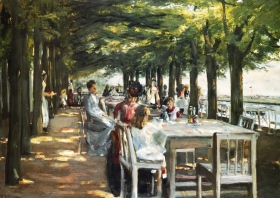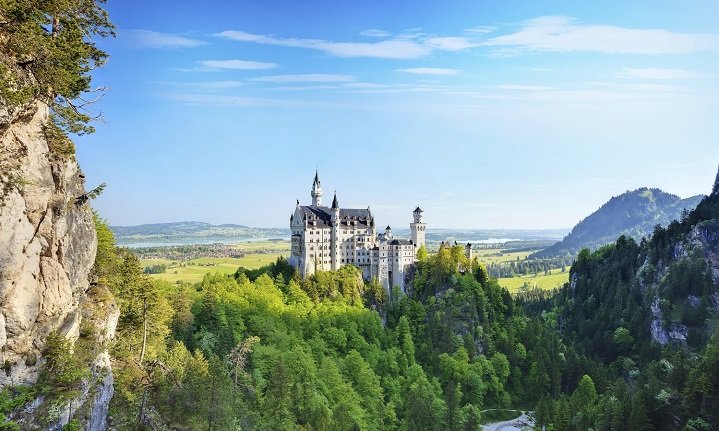German Politics 101
Overview
German politics work very much like politics in other countries. There is the “Bundestag”, i.e. the German parliament, which is made up of members of parties that were voted by Germans. The party with the most votes is the party in power and the party from which the German “Kanzler” or “Kanzlerin” (if female) is chosen. This role is comparable to a prime minister. The current chancellor of Germany is Angela Merkel, who is the first woman to ever be Germany's chancellor, and who has been in the office since 2005 – a rather long period of time. She has recently been re-elected. There are plenty of political parties in Germany, with the most important ones being CDU/CDU, SPD, “Die Grünen”, and the FDP. A short description of the main parties and some minor parties follows.
CDU/CSU
The Christian Democratic Union (CDU) and the Christian Social Union of Bavaria (CSU) build a union as CDU is not active in Bavaria, and CSU is solely active in Bavaria. On a national level they work together as they goals are more or less the same. Angela Merkel is a member of the CDU. The party is a Christian-social, liberal party concerned with traditional values. Their Christian values are one of their top priorities as the party believes that the Christian values are very important for a functioning society. However, their doors are also open for non-Christian members (about 1 in 10 members is not religious).
SPD
The Social Democratic Party of Germany is the second most popular party in Germany. The party is a center-left party, and is one of the oldest political parties in Germany. The party's main target group have been the people from the working class, yet in recent years the party also tried to address people from the middle class. The Social Democratic Party of Germany used to be the most popular party until Angela Merkel's predecessor Gerhard Schroeder made some very unpopular decisions regarding the welfare factor. So far the party has not been able to recover from that.
FDP
The Free Liberal Party (freie demokratische Partei in German, hence FDP) is a liberal party who focuses on civil liberties, human rights, a free market, education, and internationalism. It has only been founded in 1948, and is a young party compared to SPD and CDU – but of course older than many of the parties that have only emerged recently. The FDP is usually part of parliament, and often in a coalition with one of the parties in power.
Die Grünen
The Green Party of Germany is comparable to other Green parties all over the world. Their focus is on a sustainable economy and environmental protection though the party has been criticized in the past for not taking the latter serious enough and supporting the wrong things. The main supporters of this party are usually well educated, wealthy people and young people who would like to make the world a better place.
Die Linke
The left party of Germany is a rather young party, and has only been formed in 2007. It came into being as a merger of the PDS (party of democratic socialism) and the WASG (mainly a bunch of former SPD members who were a little annoyed with the SPD and thought they are better off doing their own thing – which wasn't that successful in the end). The left party has become rather popular and is one of the parties you can find in the Bundestag.
The Pirate Party of Germany
Yes, it's not a joke. There is a pirate party. But it's not the kind of pirate you find on the ocean, it's inspired by online pirates. This is the party of the younger people who fight for web freedom, and was formed in 2006. Rather surprisingly – even to their own surprise – they gained quite a few voters in 2011. However, their popularity is as short-lived as a viral video on YouTube – it appears, gets lot of attention, and then nobody ever talks about it again. The same might happen with this party as they are currently only getting about 2% of all votes.
Alternative für Deutschland
The alternative for Germany is one of the youngest parties. It emerged as the party who was the new home for all the Germans who wanted Germany to leave Europe, i.e. get back their old currency and save themselves from the financial disasters that poorer members of the EU lay on the richer countries. It is the party for Germans who are sick of having to pay for other countries' debts. They are also against the renewable energy law and would like to see it abolished.
Some obscure parties
In the past, there has been a party of German beer drinkers (the PDB – Partei deutscher Biertrinker), an anarchist Pogo Party of Germany, and even a party who simply called itself “Partei” (German for party). The Pogo party, for example, has the goal for people to have the right to be unemployed but get a full salary like someone who works in a well paid job.

_(2).jpg)


